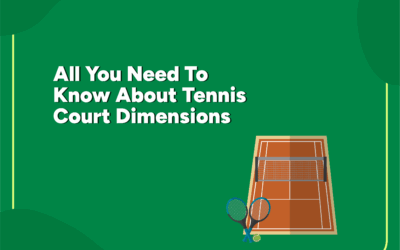The thrilling chess game, a battle involving deep strategic depth and complex tactical decisions on an interactive board, often feels like an iceberg. We see only the tip while a significant portion, full of hidden strategies and delicate nuances, remains submerged. Today, I’ll uncover some fascinating yet lesser-known rules that could be key to elevating your game.
This blog will delve into the magical realm of advanced chess strategies, focusing on hidden chess rules and lesser-known chess moves crucial for any avid player.
Understanding the Basics: The Foundation for Advanced Moves
Just like with any game, the nucleus of your game prowess lies in understanding the rudimentary chess rules. Brushing up on the basic chess rules will give you a solid foundation to build upon and the strengths essential for executing advanced, hidden chess rules. Let’s quickly recap:
- The game starts with each player having 16 pieces: one king, one queen, two rooks, two knights, two bishops, and eight pawns.
- The goal of the game is to checkmate your opponent’s king.
- Each type of piece moves uniquely, and understanding these movements is vital.
- Specific rules like castling, en passant, and pawn promotion offer strategic opportunities in the game.
Advanced strategies, in essence, are a masterful manipulation of basic chess laws. A good grip on the introductory level of chess ensures a better understanding of the game, making it easier to predict opponent moves. You’ll be able to plan your counter-strategies and react to sudden changes, thus elevating your game to higher levels.
Unveiling the Lesser-Known Chess Rules
Chess is a battle of the minds, and deciphering your opponent’s strategy while executing your own can be quite a thrilling experience. But sometimes, we need that little extra push from knowing little-known or even obscure chess rules, and utilising them to your benefit can turn the tide in your favour. Here are a few of these hidden chess gems.
En passant
Let’s start with a fascinating move called ‘En passant’, a French term meaning ‘in passing.’ Although the circumstances of this rule occurring are rare, knowing about it can add a surprising twist to your game. It happens when a pawn advances two squares from its original position and lands beside an opponent’s pawn. The opponent then can capture the first player’s pawn as if it had only moved one square forward. But remember – this opportunity exists only for the immediate move following the initial pawn advance; otherwise, the right to capture ‘En passant’ slips away.
Castling
Next in our arsenal of unknown chess moves is ‘Castling.’ This rule can be a game-changer, yet beginners often overlook it. Castling involves a player moving their king two squares towards a rook on their initial squares and then placing the rook on the last square the king crossed. This move helps protect your king and connects your rooks, setting the stage for a formidable offence or defence.
Pawn promotion
Pawn promotion is our final hidden chess rule and a potent strategic tool. Pawn promotion occurs when a pawn reaches the eighth rank; the player then has the chance to promote the pawn to a queen, rook, bishop, or knight. This rule holds immense potential because it lets you have more than one queen or more than two rooks, bishops, or knights on the board. This added piece can turn a solid strategy into an unbeatable one.
By mastering these lesser-known chess rules, you can add powerful tools to your chess-playing arsenal that will not only surprise but also outwit your adversary. Chess is an art and a sport where the more you know, the more you grow.
Surprise Tactics: Advanced Moves to Outsmart Your Opponent
Chess is a game of strategy and precision. To elevate your game, you need to understand and master a few lesser-known or perhaps even weird chess rules that can give you an upper hand. Here are a few such strategies to start with.
Zugzwang
The Zugzwang is a powerful but subtle concept in chess. In German, Zugzwang translates to “compulsion to move”. This tactic is employed when it becomes a disadvantage for a player to make a move. This is because, no matter their move, they are likely to worsen their position. To utilise this strategy effectively:
- Recognise when your opponent has limited safe moves.
- Force your opponent into a position where they have to make damaging moves.
X-rays and Skewers
Two other tactical concepts are X-rays and skewers. An ‘X-ray’ is a tactic where you indirectly attack an opponent’s piece via another of their pieces. A ‘skewer’ is a move that attacks two pieces in one go. Like the Zugzwang, mastering these tactics requires patience and practice.
Overloading
Chess overload is when a piece is given too much to defend against. Your opponent may have one piece protecting several others or an important square. Use this advantage by attacking the overloaded or the pieces it’s defending. This way, you can force your opponent into making a decision, allowing you to take control of the game.
Remember, chess is about intelligent tactics and understanding and manipulating your opponent’s psychological state. Stay patient, observe, and strike when the time is right. Implement these hidden chess rules, and watch as your game significantly improves.
Strategising for the Endgame
Chess is not just about the opening moves. The game involves a deep understanding of multiple hidden chess rules and advanced strategies that come into play in the endgame. So, let’s dive into the depth of these chess moves and take your game to the next level.
The opposition
In chess, the term ‘opposition’ refers to a situation where two kings face each other with an odd number of squares in between. Though simple, it’s a powerful strategy, especially in the endgame. Having the opposition can allow you to maintain control, restricting your opponent’s moves and ultimately leading you to victory.
- Secure the opposition when both players have minimal pieces left.
- Force your opponent to concede the opposition, thus gaining an advantage.
- Use distant opposition when the kings are more than one square apart.
Passed pawns
Passed pawns are, in fact, diamonds in the rough. These are pawns with no opposing pawns to prevent them from advancing to the eighth rank. In an endgame, passed pawns can become your secret weapon.
- Use your remaining pieces to protect your passed pawns.
- Advance your passed pawn when the path is clear, aiming to promote it to a more valuable piece.
- Utilise passed pawns to divert your opponent’s pieces, giving you room to manoeuvre your other pieces.
The king’s role in the endgame
Unlike the early game, where the king is a major point of safeguard, the king can come to life as a potent participant in the endgame.
- Use your king actively to attack and defend.
- Use your king to support your pawns towards promotion, especially the past ones.
- Never underestimate the king’s ability to sway the game during the endgame phase.
Practising Lesser-Known Chess Rules
One of the very effective ways to elevate your chess game is by engaging with chess puzzles. They sharpen your strategic thinking and familiarise you with complex and lesser-known or unknown chess moves. You can look up and practice puzzles with advanced strategies to get better at the game.
Expose yourself to the world of chess engines. The artificial intelligence of these engines replicates some of the world’s best players’ strategies, giving you a chance to compete against and learn from the best.
Conclusion
The value of employing lesser-known strategies can’t be overstated.
Embrace your chess journey with curiosity and enthusiasm. Constant exploration and learning will only lead to better performance whenever you play a game. Remember, even the world’s greatest grandmasters started from novice levels and improved over time. Get acquainted with chess books, watch videos of experts playing chess, look up strange chess rules you come across, and analyse your games to identify weak points and master them.Do you wish to play chess with skilled individuals? Are you looking for venues where you can practice chess for long durations? Playo is the answer!
Playo is a sport-centered app that allows you to look up available venues to play over 50 sports – including chess – and connect with community members who share your interests! Download the Playo app today to find the best locations across India, Dubai, and Doha.




